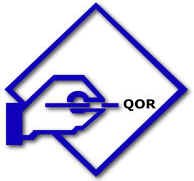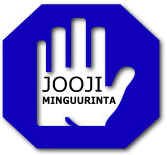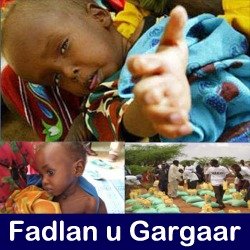Since September 6th when a two and a half a day long conference known as the High Level Consultative Meeting was concluded in Mogadishu, the name that has been dominating the Somali political discourse was the Road Map- the byproduct of said meeting. Or, the document endorsed by the participants as the prerequisite for Somalia to emerge out of its transitional status.
Unfortunately, like all documents signed in the previously 15 failed reconciliation conferences concocted by the international community, this too was an exercise in futility. For the past two decades, multiple agreements were signed in order to give the erroneous impression that this would be the panacea that solves all our problems. Each time, these so-called agreements have lead to new phases of complications.
Ironically, despite the wide consensus to end the international community’s monopoly and the popularity of seeking an organic solution to the Somali problem, the Road Map made it, at least to the second round. Of course, not without a carrot—emerging out of the transitional status—and not without a stick—cutting the international aid. Like any benevolent Mafia Godfather would do, the Transitional Federal Government (TFG) was offered an offer that it could not refuse….
The Roadmap is made of four benchmarks: Security, Constitution, Political Outreach and Reconciliation, Good Governance; Each with its own specific tasks and timelines.
Generally these benchmarks and tasks are fine, except the following few controversial impositions: handpicked “stakeholders”; federalism as a system of governance; granting the parliament the authority to reform itself; and indirectly facilitating the secession of the political entity known as Somaliland.
First, on Stakeholder: While inclusiveness of the stakeholders is often repeated as a prerequisite to sustainable reconciliation, the Somaliland issue is surprisingly (or perhaps not) missing, not to mention that regional administrations such as Puntland and Galmudug are ensured exclusive status. Then there is the issue of Ahlul Sunnah wal Jamaa’ah (ASWJ) as a militia group that is neither considered a regional administration nor as part and parcel of the TFG. Therefore it deserves more scrutiny.
Historically ASWJ was a pacifist Sufi community, though presently they are a force to reckon with. They have unrelenting support from certain elements of the international community who exploit them as a tactical allay. It became the aggressively promoted panacea and the ingredient added to any and all potions fed to Somalia for quick healing. Since stepping onto the bloody stage of Somali politics, it has proven itself as a political chameleon that on one hand improves conditions and on the other worsens. Some times they work as one unit, other times they work as a fragmented group that are at odds with each other. They fight along clan lines or along sectarian lines, depending on the political convenience. Wittingly or otherwise, the only unwavering thing within this group is its loyalty to advance the “myopic strategic interest of Ethiopia to keep Somalia divided.”
A couple of years ago when a number of high ranking officials of the old Somali National Army (SNA) held a conference in Washington, DC to piece together a security strategy to stabilize the country. The central pillar of their proposal was to do away with clan militias and rebuild the SNA. Ethiopia, in its own paranoiac and often self-defeating reaction, used an ASWJ General to sabotage the effort. The day the conference was concluded, the General gave relentless interviews clearly intended to sow the seeds of suspicion that these highly regarded high officials were in fact plotting to establish another military regime. He did not have to provide any proof.
Second, the Security Benchmark: There seems to be a disproportionate focus on security issues that are in the immediate best interest of the international community but hardly any thing that is in the best interest of stabilizing Somalia and protect its national integrity. The Roadmap focuses on dealing with piracy—and no one is denying that piracy should be dealt with—and does not mention any thing about strengthening and integrating the army under one command. Implicitly, the document sets the stage for indefinite dependency on AMISOM- the AU troops in Mogadishu. Meanwhile, ASWJ is an armed faction that does not come directly under the SNA.
Even more bizarre is the fact that the Security Benchmark pressures Somalia to make certain concessions on its Exclusive Economic Zone (EEZ) or ocean rights to its neighbor Kenya.
Third, the Constitution Benchmark: The problem with this benchmark is beyond irony and more on the hilarious side! Despite the wide consensus on the part of the international community and the Somali public opinion on the need to reform the over-bloated (550 member) mostly corrupt transitional Parliament, the Road Map hands the power to reform to the very ones who are in need of reform. The Speaker of the Parliament is granted the power to fill all oversight and implementation committees. He is granted the power to literally handpick any and all whom he sees fit to advance his vision.
Arguably the most expensive constitution ever drafted, yet the most shallow in addressing the most pressing issues facing the nation and all the fault-lines that could ignite new problems in the near future: the Somaliland issue, clan exclusive territories and the grazing rights of the nomadic community, resource sharing and taxation, national security, and who has the exclusive authority to frame foreign, defense, and monetary policy for the country, to name a few.
The United Nations Political Office for Somalia (UNPOS) claims that they have spent over $60 million to draft the constitution at hand. A classic example of how the “Mafia network” in Nairobi squanders the monies donated in the name of Somalia, and how it perpetuates the self-destructive culture of corruption by some in the Transitional Federal Institutions (TFI).
Imagine how many starving children that dollar amount could feed!
In conclusion, while the Road Map does have a few positive tasks in all the benchmarks, it still remains as a precooked sham spearheaded by certain frontline countries such as Ethiopia, Uganda, and Kenya who are the direct beneficiaries of perpetuating the Somali conflict.
————————
Dr. Oduesp Eman teaches political science and international relations




































comment closed after 30 days / Jawaabaha waa la xiray ama waa la joojiyay wixii ka badan 30 cisho.